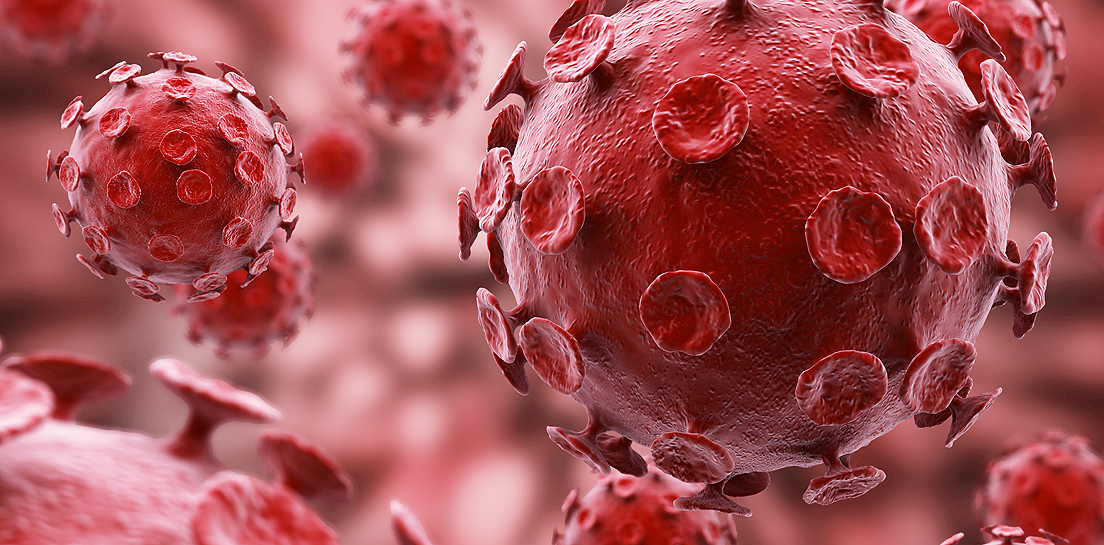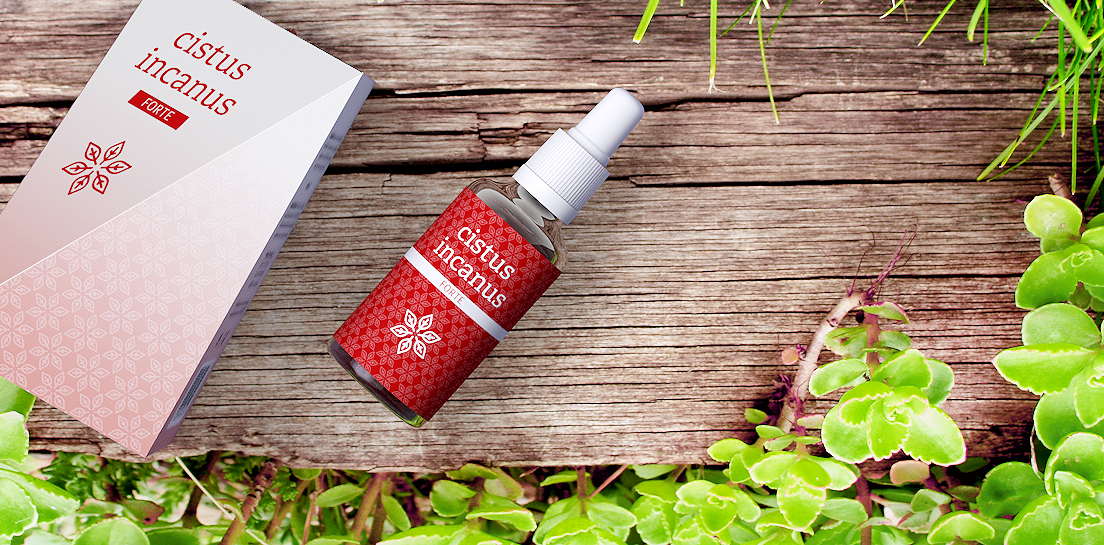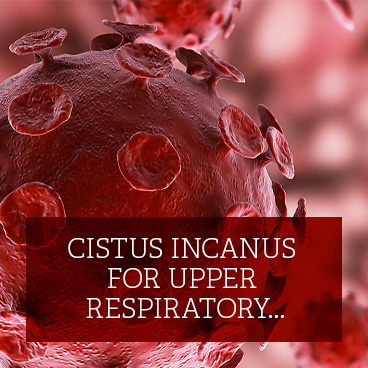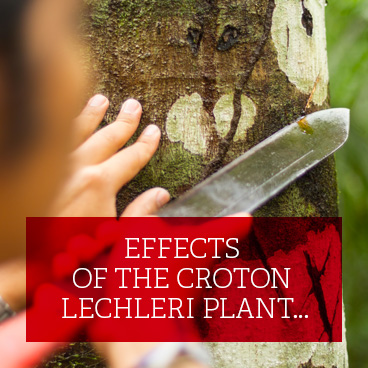Cistus incanus for upper
respiratory tract infections
A clinical study has been conducted in Germany to monitor the effects of Cistus incanus and its antiviral activity. The results may also prove very interesting for users of Energy products because Cistus incanus figures in them. We group it among solitary extracts such as Annona muricata and Tribulus terrestris. Cistus incanus is 90% leaf macerate.
Some of the most common illnesses in the world affect the upper respiratory tract, which can result in significant morbidity, financial loss, and also death due to complications. It has become a global trend to seek out new, natural substances with antiviral effects.
One source is cistus, which is known in folk healing for its anti-inflammatory, anti-viral and anti-fungal effects. The first written references to its use date back to 330 BC. Cistus incanus, or pink rock-rose, probably hails from Persia. It gradually spread to Cyprus, then on to Turkey, and ultimately to the whole of Europe. At present, it is mainly found naturally in mountainous areas of the Mediterranean and North Africa. The Energy “rose” comes from Turkey.

Effects of cistus
The most important active substances of cistus are plant polyphenols. These substances act directly on a virus by blocking certain proteins and receptors on its surface. They prevent the virus from entering the host cell that the virus needs to propagate. Polyphenols are large molecules capable of binding or even absorbing the virus. Of all European medicinal plants, cistus contains most polyphenols.
Objective of study
The above-mentioned clinical study of the effects of cistus was carried out in a healthcare facility and was controlled by a placebo, i.e. a control product of the same shape and size, but without the active ingredient. A placebo-controlled study is completely objective. This was the first study of effects on such a scale. The aim was to monitor subjective symptoms in colds treated with cistus or with a placebo.Method and process
Patients received two tablets with cistus or a placebo six times a day for seven days. They answered a questionnaire on their subjective problems. Pain, temperature, intensity and frequency of coughing, congestion and runny nose were evaluated. Laboratory and blood tests were checked on an ongoing basis.
Results
The best results were achieved with viruses and flu, and to a lesser effect with bacterial infections. Here, however, there was an interesting drop in CRP (C-reactive protein, the level in the blood of which increases with inflammatory diseases) from the fourth day of treatment. The reduction in secondary bacterial complications, which mainly tend to cause pneumonia and sinus inflammation, was a significant benefit.The cistus tablets were dissolved in patients’ mouths. This administration was found to reduce the transfer of infection from the nasopharynx to the bronchi and lungs. A kind of disinfectant aerosol was formed by breathing. This also helped to protect the surrounding area from new infection caused when a virus is able to travel by coughing and sneezing.
There were minimal undesirable effects of treatment during the research. Intermittent stomach upsets were reported, which paradoxically occurred mainly with the placebo. Research into new chemical compounds is clearly restricted by their limited efficacy, the presence of undesirable effects, and even potential toxicity. The benefits of natural substances are that they are readily tolerated, they are natural, and they have minimal side effects.
New methods of use
Building on the findings made during the study, I thought it advisable to drop Cistus incanus on the tongue and spread it over the mouth area. Let it act for a while, then either wash down with water or rinse your mouth, or even just leave it. Cistus has a very spicy flavour. The constrictive effects on the mucous membrane are reminiscent of Drags Imun. Another option is to add concentrate to Grepofit spray, or use it directly as a gargle in water.
IN CONCLUSION, IN THE STUDY CISTUS WAS CLEARLY MORE EFFECTIVE THAN A PLACEBO IN REDUCING THE AVERAGE DURATION AND SEVERITY OF SYMPTOMS IN PATIENTS WITH UPPER RESPIRATORY TRACT INFECTIONS. AND THAT IS GREAT NEWS!

Jiří Hanzel, M.D.
Follow us on social media
“Never doubt that a small group of thoughtful, committed, citizens can change the world.
Indeed, it is the only thing that ever has.”
Margaret Mead













